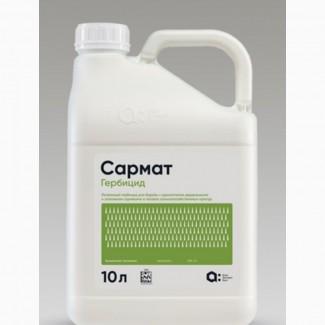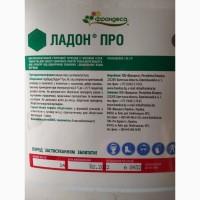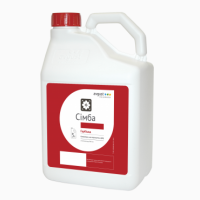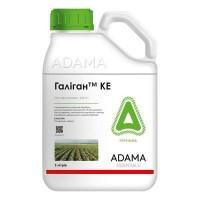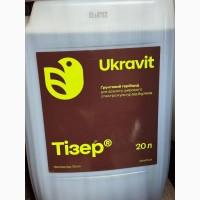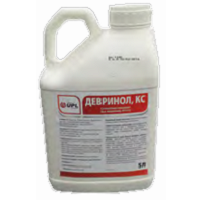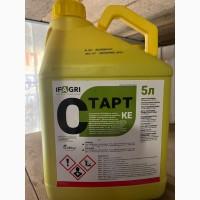/ Fertilizers and plant protection products / Herbicides / Sarmat - soil herbicide against weeds in crops...
Sell / buy
Sarmat - soil herbicide against weeds in agricultural crops, Kyiv region.
Price7$
Region:all Ukraine,
Kyiv region.
(Vyshhorodok)
Updated:
Sarmat is a soil herbicide designed to combat annual cereal and dicot weeds, including hours with a sticky nightshade in crops of peas, soybeans,sunflower, potatoes.
Active ingredient: Promethrin
Preparative form: Suspension concentrate
The content of the active substance is 500 g/l
Chemical class: Triazines
Method of entry: Systemic pesticide
Nature of action: Herbicide of selective action.
Human hazard class: 3
Danger class for bees: 3
Crops: Sunflower, corn, potatoes, soybeans, peas for grain.
Harmful objects: Annual dicotyledonous and grassy weeds.
Packaging: canisters of 10 liters, the price is indicated for 1 liter. 159
Властивості та переваги гербіциду Сармат:
Suppresses a wide range of dicot and grass weeds.
Long lasting action.
Absence of phytotoxicity in relation to subsequent crops of crop rotation.
Does not require embedding in the soil.
Preparative form that ensures the formation of a stable "screen".
(//tractor-service.com)
Sarmatian - regulation of application and features
Rate of consumption (l/ha, kg/ha) Culture, treated object Waste plant Method, time of processing, limitations Term of the last processing, in days beforeharvest, ( ) maximum frequency of processing
2.0-4.0 Sunflower Annual dicotyledonous and cereal weeds Spraying the soil before sowing, simultaneously with sowing or before crop emergence. Consumption of working fluid – 100-300 l/ha (1)
2.0-4.0Corn Annuals dicotyledonous and cereal weeds Spraying the soil before sowing, simultaneously with sowing or before seedlings of cultua. Consumption of working fluid - 100-300 l/ha (1)
3.0-4.0 Potatoes One-year dicotyledonous and cereal weeds Spraying the soil to seedling crops. The sale of tubers is allowed no earlier than 3 months after processing. Consumption of working fluid – 100-300 l/ha (1)
3.0-5.0 Soybean Annual dicotyledonous and cereal weeds Spraying the soil before sowing or before crop emergence. Consumption of working fluid - 100-300 l/ha (1)
3.0-5.0 Peas per grain Annual dicotyledonous and cereal weeds Spraying the soil before sowing or before crop emergence. Consumption of working fluid - 100-300 l/ha (1)
The optimal temperature regime for the use of the drug is +10-20°С. If the temperature drops below +10 C for a long time, the effectiveness of the drug may decrease.
The herbicide is used on well-cultivated soil that does not contain large lumps (larger than 2 cm in size). Plant residues on the soil must be removed, as they are a barrier to the penetration of the herbicide into the soil. Minimum doses of the drug should be used on light soils. On heavy soils and soils with a high content of humus, including chernozems, it is necessary to use the maximum dosage of the drug. Within 2 weeks after treatment, it is necessary to exclude the passage of equipment and mechanical processing of the treated area, as this leads to a violation of the integrity of the herbicide "screen". In arid conditions, it is recommended to wrap the preparation in the soil 2-3 cm small.
Important to know when using soil herbicides
The structure of the soil should be fine-grained, in order not to reduce the effectiveness of the soil herbicide, it is necessary to exclude large lumps, stubble and harvest residues from the soil composition.
The soil moisture should be moderately high, in particular, in the process of applying the herbicide, it is necessary to strictly observe the norms of its working consumption - at least 400 liters should be applied per 1 ha. To increase efficiency, you can wrap it in the soil to a depth of 3-5 cm.
The type and type of soil, as well as the amount of organic matter contained in it, can affect both the effectiveness of the soil herbicide and the duration of its action. The lighter the soil, the smaller the amount of preparation needed to treat a unit of area. On soils with a high content of humus, the herbicide consumption rate should be increased. This is due to the high absorption capacity of organic substances in the soil.
The effectiveness of soil herbicides depends on weather conditions. It is not recommended to apply herbicide at low temperatures and excessive humidity.
Active ingredient: Promethrin
Preparative form: Suspension concentrate
The content of the active substance is 500 g/l
Chemical class: Triazines
Method of entry: Systemic pesticide
Nature of action: Herbicide of selective action.
Human hazard class: 3
Danger class for bees: 3
Crops: Sunflower, corn, potatoes, soybeans, peas for grain.
Harmful objects: Annual dicotyledonous and grassy weeds.
Packaging: canisters of 10 liters, the price is indicated for 1 liter. 159
Властивості та переваги гербіциду Сармат:
Suppresses a wide range of dicot and grass weeds.
Long lasting action.
Absence of phytotoxicity in relation to subsequent crops of crop rotation.
Does not require embedding in the soil.
Preparative form that ensures the formation of a stable "screen".
(//tractor-service.com)
Sarmatian - regulation of application and features
Rate of consumption (l/ha, kg/ha) Culture, treated object Waste plant Method, time of processing, limitations Term of the last processing, in days beforeharvest, ( ) maximum frequency of processing
2.0-4.0 Sunflower Annual dicotyledonous and cereal weeds Spraying the soil before sowing, simultaneously with sowing or before crop emergence. Consumption of working fluid – 100-300 l/ha (1)
2.0-4.0Corn Annuals dicotyledonous and cereal weeds Spraying the soil before sowing, simultaneously with sowing or before seedlings of cultua. Consumption of working fluid - 100-300 l/ha (1)
3.0-4.0 Potatoes One-year dicotyledonous and cereal weeds Spraying the soil to seedling crops. The sale of tubers is allowed no earlier than 3 months after processing. Consumption of working fluid – 100-300 l/ha (1)
3.0-5.0 Soybean Annual dicotyledonous and cereal weeds Spraying the soil before sowing or before crop emergence. Consumption of working fluid - 100-300 l/ha (1)
3.0-5.0 Peas per grain Annual dicotyledonous and cereal weeds Spraying the soil before sowing or before crop emergence. Consumption of working fluid - 100-300 l/ha (1)
The optimal temperature regime for the use of the drug is +10-20°С. If the temperature drops below +10 C for a long time, the effectiveness of the drug may decrease.
The herbicide is used on well-cultivated soil that does not contain large lumps (larger than 2 cm in size). Plant residues on the soil must be removed, as they are a barrier to the penetration of the herbicide into the soil. Minimum doses of the drug should be used on light soils. On heavy soils and soils with a high content of humus, including chernozems, it is necessary to use the maximum dosage of the drug. Within 2 weeks after treatment, it is necessary to exclude the passage of equipment and mechanical processing of the treated area, as this leads to a violation of the integrity of the herbicide "screen". In arid conditions, it is recommended to wrap the preparation in the soil 2-3 cm small.
Important to know when using soil herbicides
The structure of the soil should be fine-grained, in order not to reduce the effectiveness of the soil herbicide, it is necessary to exclude large lumps, stubble and harvest residues from the soil composition.
The soil moisture should be moderately high, in particular, in the process of applying the herbicide, it is necessary to strictly observe the norms of its working consumption - at least 400 liters should be applied per 1 ha. To increase efficiency, you can wrap it in the soil to a depth of 3-5 cm.
The type and type of soil, as well as the amount of organic matter contained in it, can affect both the effectiveness of the soil herbicide and the duration of its action. The lighter the soil, the smaller the amount of preparation needed to treat a unit of area. On soils with a high content of humus, the herbicide consumption rate should be increased. This is due to the high absorption capacity of organic substances in the soil.
The effectiveness of soil herbicides depends on weather conditions. It is not recommended to apply herbicide at low temperatures and excessive humidity.
|
Shop, contacts | |
Yuriy / feedback, info. / evaluation activities | |
|
Phone:
+38(xxxxxx
show
| |
All ads user ~1000 | |
Ad ID: #1211814
(added by a registered user, registration date: 10-08-2016)
Added / Updated: 15-10-2025 09:10 (current, until: 10-15-2026)
Permanent Ad Address:
Impressions / views for today: ?, total: ?
Similar ads
There are many interesting ones among them...
